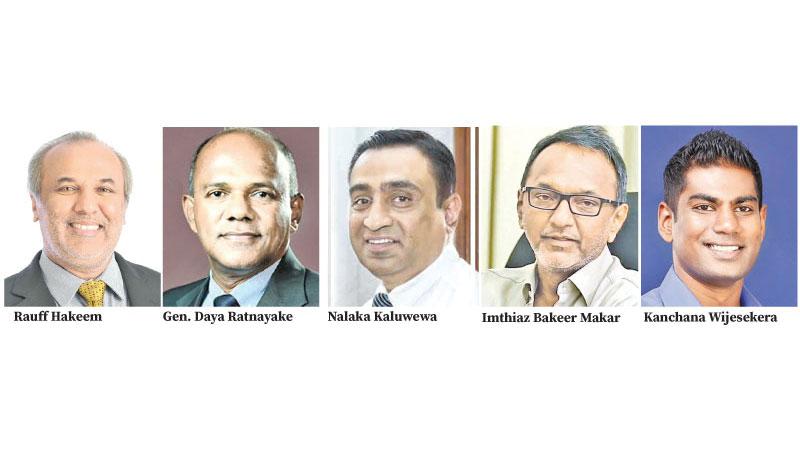
The Government last week moved to prohibit security forces from taking news media cameras on search operations around the country in the wake of the Easter Sunday bombings that killed 258 people.
For weeks, the news cycle has been dominated by SMS alerts and sustained nightly news bulletins that feature 10 minute segments on the day’s search operations by security forces and police. While some searches have resulted in important seizures, the majority have turned up swords, knives and small explosives. Property owners are taken for questioning by the police, in full view of the cameras, with their identities compromised.
Across the country, security forces personnel acknowledge that the Muslim community has been strongly supportive of the sweeping searches. Shell-shocked citizens at large have also welcomed the searches, with fears of further explosions still gripping the nation.
But the constant news media focus on search and seizure operations by security forces have begun to cause consternation in sections of the Muslim community.
The constant seizure of swords and knives from homes and mosques followed by media showcases was giving rise to a major fear psychosis in society that politicians and community leaders could give rise to xenophobia and increased suspicion between communities.
Cabinet Minister and Sri Lanka Muslim Congress Leader Rauff Hakeem cautioned that the Muslim community was ‘highly motivated’ to cooperate fully with the security forces, since the heinous attacks on Easter Sunday had put the entire community at peril. ‘This must not be squandered,’ he warned, and care must be taken not to create resentment that could lead to further radicalisation. “A distinction must be made between local criminal elements and suspects wanted in connection with terrorism,” Minister Hakeem said in an interview.
Speaking to Sunday Observer, Director General of Government Information Nalaka Kaluwewa explained the decision to request media to stop accompanying security officials on raids and searches. The constant footage was hampering a return to normalcy after the Easter Sunday bombings, a fact that was evident when schools reopened on Monday, but most reported poor attendance.
“We requested the media to stop showing security operations to avoid people getting panic unnecessarily. No one should see this as censorship. It is only an appeal. Children are not being sent to school. Clearly the public is still in fear,”
Former Army Chief Daya Ratnayake disagrees. He believes transparency is important to avoid providing a platform for gossip and speculation. The media should not be banned from covering the searches, Gen. Ratnayake said. “This is what we experienced in 1983. The government at that time did not communicate the correct information and it paved the way for gossips. Hence the government and security forces should act carefully in a situation like this” he said.
He added, “What we see at this moment is the lack of public faith. Therefore, it is necessary to communicate security operations in a way which boosts the public faith. In order to achieve that communication should be managed by a central agency”.
Islamophobia and media culture
Imthiaz Bakeer Markar, an attorney-at-law and old Anandian (Imthiyaz has always been an activist towards abolishing the ethnic and religious boundaries within the Sri Lankan school system), brought the attention of the discussion into Islamophobia spread through the giant media companies. As said by him, survey results of famous Gallup polls had revealed some time ago, that only six percent of the world’s Muslim population were engaged in terrorist activities during 1998- 2005.
“In my view, big media companies made Islam an opponent of the West. Then the West attacked Iraq, Libya and Syria in the name of defeating Islamic terrorism” he said.
He also pointed out the fact that former British premiers, Tony Blair and Gordon Brown later confessed that they supported those military operations as they were told about the illegal weapons.
“The media has a major role to play at this moment. But we cannot be satisfied with the way some media behave. They should do everything within the professional code of ethics” he said.
Imthiaz also praised the way Archbishop Malcolm Cardinal Ranjith handled the situation. “The Cardinal led the people wisely. He talked about external influences that could be behind this attack. The Muslim community should also understand this situation,” he said.
Meanwhile Matara District UPFA MP Kanchana Wijesekera has been urging that the media should be controlled to avoid communal disputes. “The problem I have is the way the media give expose to all those who are questioned by the police. They give publicity to everyone identifying them as terrorists. As a result people begin to think that all those who are taken in for questioning are linked to terrorists. This not only causes harm to those who are proved innocent but also to creates disharmony among communities. By this we are helping others to be extremists” he told the Sunday Observer.
Wijesekera proposed the appointment of a media spokesman to communicate search operations.
